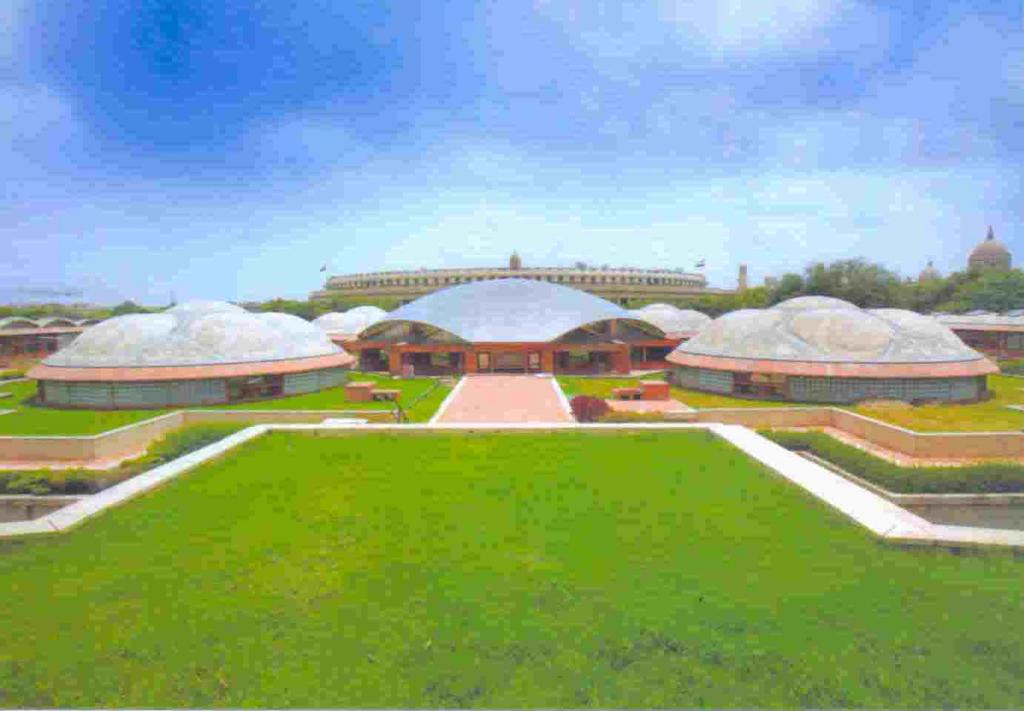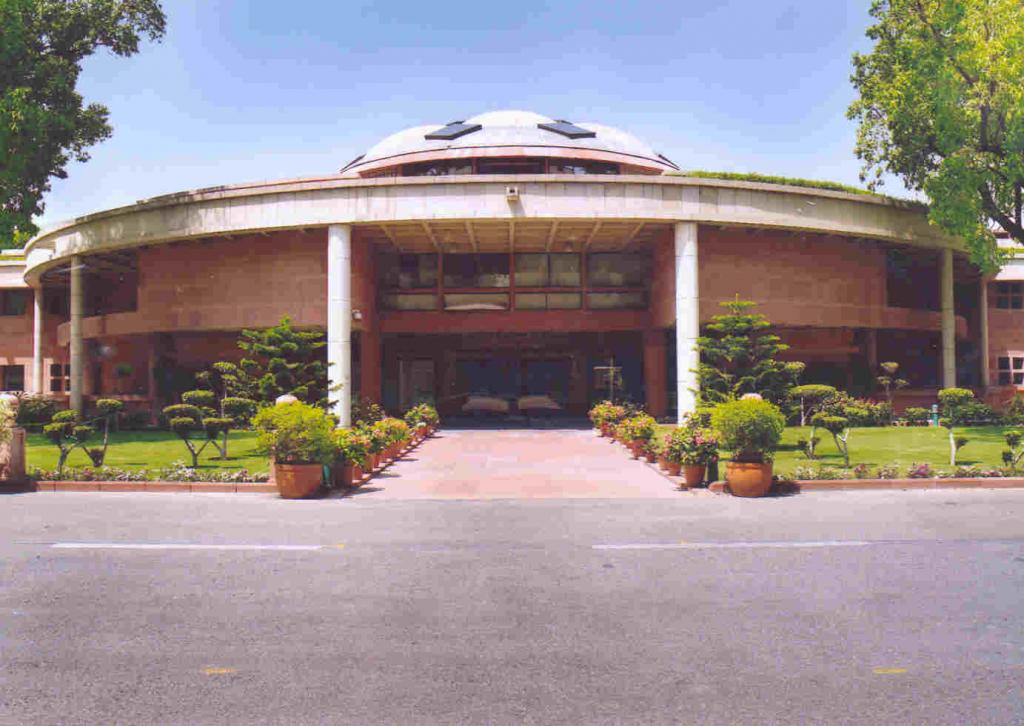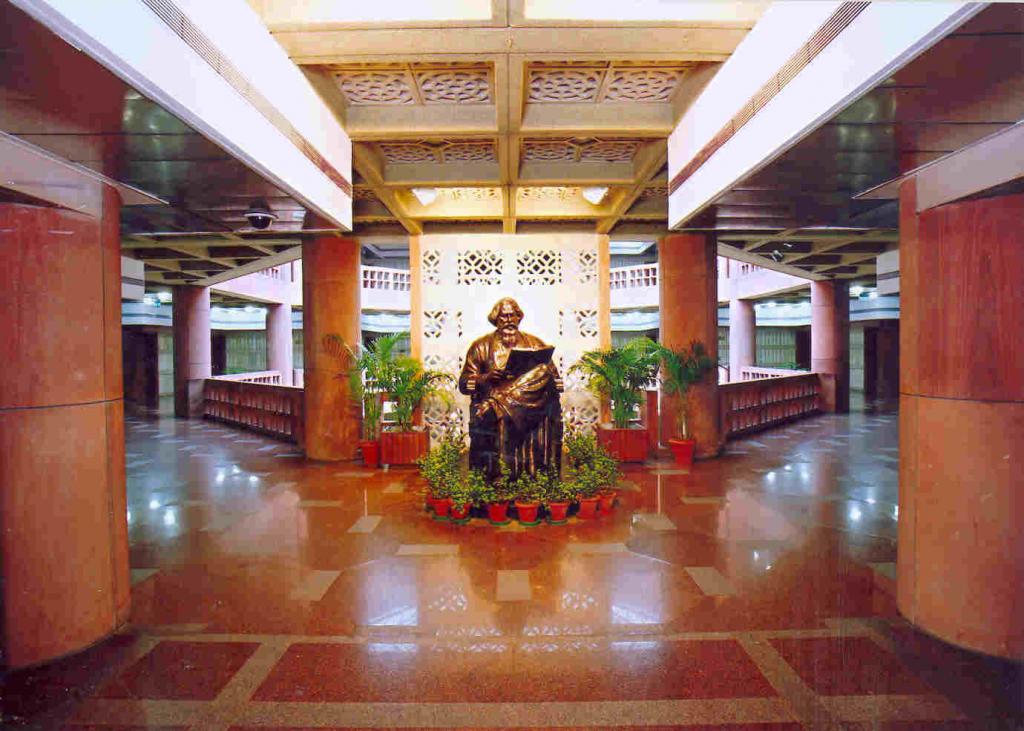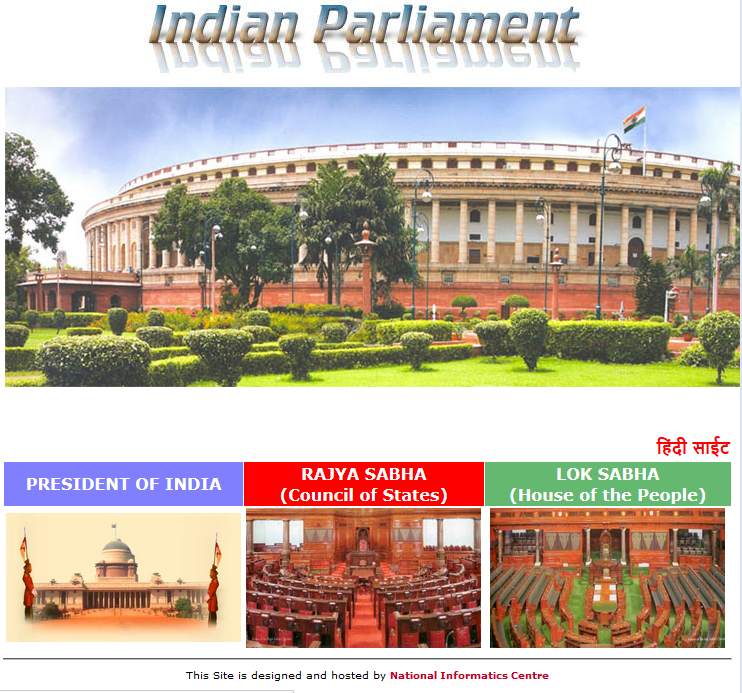Delivering parliamentary library and research services in an interconnected world: the case of the Parliament of India
02 September 2016
Our participation in the recent IFLAPARL pre-conference in Washington, D.C. inspired us to share our story on how the Library and Research Service of the Parliament of India is connecting parliamentarians to quality information.
In today’s world, information is perceived to be very important: it has become all the more understandable in the age of information and communication technologies (ICTs). How effectively the Parliament and parliamentarians play their roles largely depend on the extent to which quality information and dialogue permeate parliamentary activities. In present day scenario, the scale and scope of information required by the members have risen to such an extent that it calls for a wide variety of inputs and techniques at their disposal.
A small library for the members of the then Central Legislative Assembly in India was established in 1921. Today, this library has grown into a full-fledged service called the Parliament Library and Reference, Research, Documentation and Information Service, known more familiarly by its acronym LARRDIS.


The LARRDI Service is not merely a repository of books, publications, legislative debates and parliamentary papers, but also an integrated store-house of knowledge. The Service is presently divided into the following functional divisions: Library Division; Members' Reference Division; Research and Information Division; Press and Public Relations Division; Audio Visual and Telecasting Division; Parliamentary Museum and Archives Division; Bureau of Parliamentary Studies and Training (BPST). The LARRDI Service is also integrally associated with the computerization services of the Lok Sabha Secretariat.
The Library of the Indian Parliament is one of the richest information sources for the members of Parliament. It has holdings of more than 1.25 million printed books, national and international reports, governmental publications and other documents. It gets around 85 Indian and foreign newspapers and 475 journals and periodicals in English, Hindi and other Indian languages. The activities of our Parliament Library have been automated by using an indigenously developed software package 'LIBSYS' for meeting the reference needs of the members of Parliament, Committees, Research and Reference personnel and others by enabling them to access the library database on Internet.


A digital collection of reference books, year books, reports, atlases, dictionaries and more can be accessed through the Local Area Network. Presently, a digitization project is under progress for creation of PDF files of the proceedings of Lok Sabha, including Questions and Debates, rare books available in Parliament Library, latest publications produced by the Research and Information Service, committee reports, commission reports, etc.
The Documentation Section is primarily responsible for locating, collecting, classifying and indexing all the useful literature and articles appearing in newspapers, books, periodicals, etc., received in the Parliament Library. The titles are suitably annotated and arranged under a specially devised subject-wise classification scheme and fed into the ‘LIBSYS’ software. These are retrievable through the Home-Page of Parliament of India under the icon ‘Parliamentary Documentation’.
The Press Clippings Section collects important and up-to-date news items, editorial comments and articles on developments in the legislative, political, economic, socio-cultural, scientific and technological fields. The clippings are taken from various English and Hindi newspapers published from different parts of the country. Scanned and selected Press Clippings (in English) from July 2011onwards, on issues of topical interest can be retrieved through classification number and subject keywords.
The Research and Information (R&I) Division of Lok Sabha Secretariat meets the multifarious research and information requirements of the Hon'ble Speaker (HS), Hon'ble Deputy Speaker (HDS) and members of Parliament. Officers and Staff in this Division are deputized into specialized functional Wings or Sections identified by the subjects: Economic and Financial Affairs Wing; Educational and Scientific Affairs Wing; Journal of Parliamentary Information Section; Legal and Constitutional Affairs Wing; Parliamentary Affairs Wing; Political Affairs Wing; Practice and Procedure Unit; Social Affairs Wing; and Who's Who Cell.
The Division prepares a large number of well-researched speeches, talking points, presentation papers, briefs and background notes, etc. on various subjects of discussion for use during the various International/Regional Parliamentary Conferences/Seminars/Workshops. Besides, draft Resolutions, Memoranda, Declarations on general as well as specific themes discussed/adopted at these fora are also examined and amended from nation’s point of view. Soft copies of the same are made available to the Conference Branch for further action. The R&I Division prepares Legislative/Information Bulletins on Bills before the Parliament/subjects of topical interest on which Parliament is likely to undertake discussions, for circulation among the members of Parliament. The same are made available on the Parliament of India Home Page.
The Journal of Parliamentary Information (Quarterly) is brought out as a source of information about the developments in practices and procedures, parliamentary and constitutional developments, sessional review, important parliamentary events and activities in India and foreign Legislatures, articles on issues of parliamentary importance, etc. The Journal is accessible through our Home Page.
Access to some of the major publications brought out by the R&I Division from time to time on various aspects of parliamentary functioning, practices and procedures, and other relevant subject, is provided through intranet.
Members’ Reference Service
As the members of Parliament need factual, objective, brief and up-to-date information for effective participation in discussions on matters before Parliament, we have evolved Members' Reference Service to meet such demands both in English and Hindi. Various subject-based Members' Assistance Desks have been set-up to make it convenient for members to give their requisitions.
Members’ portal has the facility to provide for ‘Online Reference Service’ to the members of Parliament. Members can now send their requisitions/queries online and retrieve information on important and burning topics/subjects through the portal. Besides, a large number of Reference Notes are also made available on Intranet for online retrieval. The Reference Notes are also e-mailed to the members of both the Houses of Parliament.
Since 15 March 1996, the Parliament of India home page http://parliamentofindia.nic.in has emerged as an important source of information and reference tool for the members of Parliament. At present, separate websites of Lok Sabha and Rajya Sabha are being maintained by the respective Secretariats and are linked onto the Parliament of India Home Page. The Home Page also contains the Speaker’s and member’s homepages.
Major components of parliamentary information accessible through Home page include: Business of the House; Bulletins and Resume of Work done during each Session; Questions; Debates; Bills-related information and texts of Government/Private Members Bills introduced; Committees’ information with regard to their composition, members, meetings, subjects selected, bills referred, sittings, schedules, study tours, reports presented and action taken statements; papers laid on the Table, information about the Secretariat, etc.

In addition to the above, Rules of Procedures and Conduct of Business, Directions by the Chair, Government of India Manual on Parliamentary Work, well researched Information Bulletins and Reference Notes can also be accessed. Besides, 24 hours Lok Sabha TV webcast, its schedule, important video clippings are available onto the Home Page. Links to data.gov.in to access government data available, Legislative Bodies in India; other Parliaments; Inter-Parliamentary Union; Commonwealth Parliamentary Association; President of India; Prime Minister; Ministries; States and UTs; Election Commission; Indian Courts have also been provided.
E-Portal for Members
Recently, the Hon’ble Speaker of Lok Sabha, Smt. Sumitra Mahajan has launched an e-portal for the exclusive use of the members of Parliament. Now the members can opt for several online services including submission of Questions and Notices under different rules of the Rules of Procedure & Conduct of Business in Lok Sabha, requisition for references, etc. in electronic form.
All the members are being provided digital signature certificates for this purpose. Through this portal, they will be able to receive information regarding Bills, Committee meetings, agenda, material received on subjects, etc. Training is conducted, from time to time, with a view to familiarizing them with its functioning.
The members of our Parliament and the staff are well-equipped with requisite IT infrastructure and facilities including access to Internet and e-mail messaging services with the domain name (sansad.nic.in). In order to facilitate sharing of data and access Internet, a Local Area Network (LAN) has been laid within the Parliament Complex. As of now, the work regarding making the entire Parliament Complex wi-fi is in progress. Computer connectivity to the outside world including Internet is provided through the National Informatics Centre Network known as NICNET. The NICNET also connects all the Central Ministries/Departments, State Capitals, important institutions and the District Headquarters of the country. The members of Parliament have been provided facility to procure computer and other peripherals including e-Reader devices under the scheme of Financial Entitlement. Computer Awareness Programmes are also organized to enable them to make optimum use of computer facilities. Political Parties having allotted accommodation in Parliament House Complex are entitled to one Desktop, one UPS, one Printer and Internet connection.
Conclusion
It has been our constant endeavour to keep pace with latest technologies so as to ensure sufficient arrangements for delivering parliamentary library and research services to the members of Parliament in an interconnected world.
Yet there is always a room for further improvement. Lok Sabha Secretariat has constituted a Committee to recommend steps/measures, from time to time, for automation of the various services meant for the members of Parliament; and secondly, for introduction of technology to enhance efficiency in the offices catering to the needs of the House, its Committees and the members.